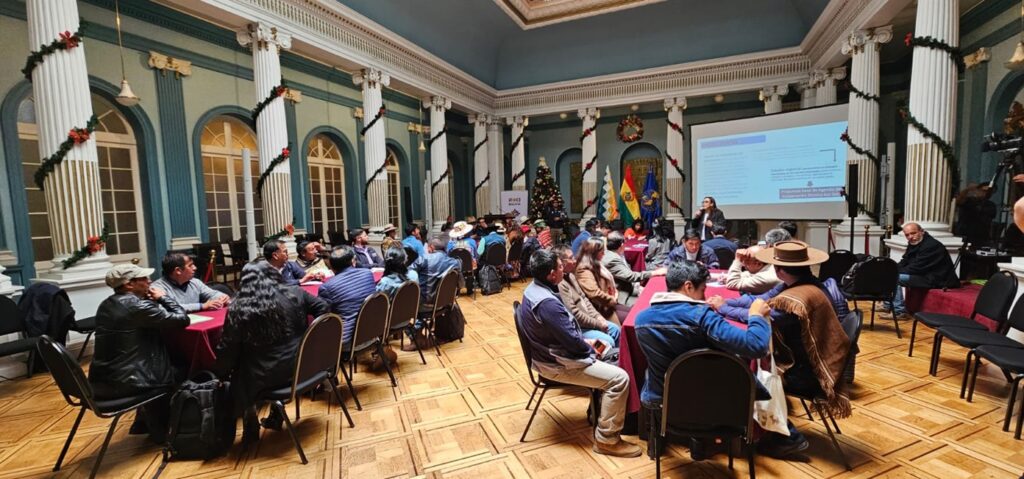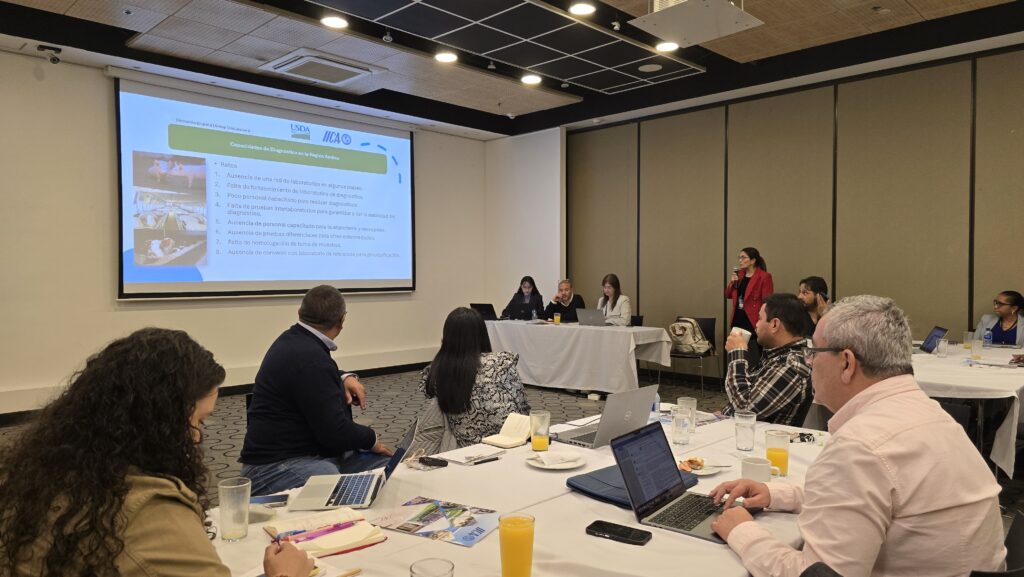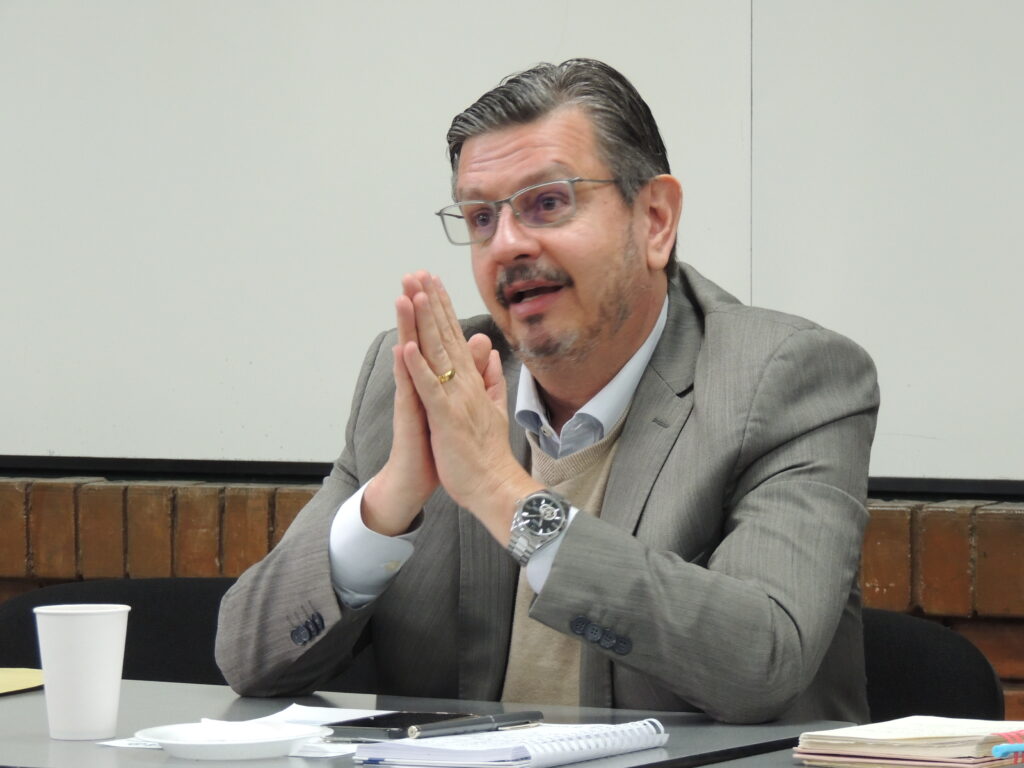Proyecto en marcha del IICA procura crear capacidades para dotar de sostenibilidad a la producción agrícola del país.
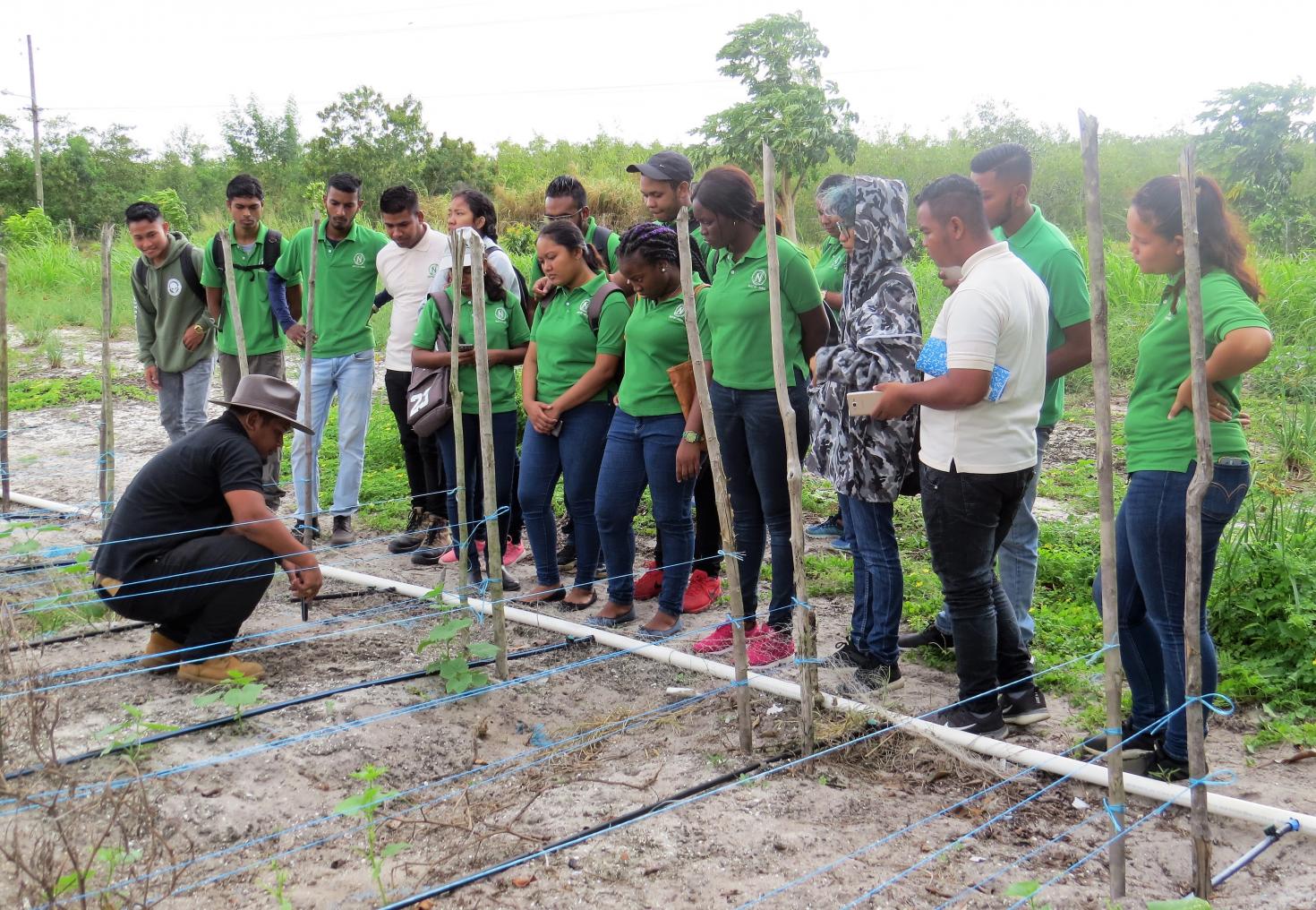
Paramaribo, Surinam, 20 de setiembre, 2019 (IICA). El Instituto Interamericano de Cooperación para la Agricultura (IICA) realizó un taller en Paramaribo, Surinam, con vistas a mejorar las capacidades técnicas e institucionales para la Gestión del Riesgo de Desastres Agrícolas (ADRM) y la agricultura sostenible en este país.
El taller, titulado “Herramientas de modelado de variabilidad climática para la toma de decisiones basadas en la evidencia en la gestión del riesgo de desastres agrícolas” fue dirigido por Dimitris Herrera Hernández, experto en variabilidad climática y profesor asociado posdoctoral en la Universidad de Cornell, Nueva York, Estados Unidos.
El encuentro formó parte del proyecto de cooperación técnica “Mejora de las capacidades técnicas e institucionales para la gestión de riesgos climáticos y de desastres y la agricultura sostenible en Jamaica, Guyana y Surinam”. La cita fue financiada por la Organización de las Naciones Unidas para la Alimentación y la Agricultura (FAO).
La capacitación se dirigió a las partes interesadas en el sector público y privado, organizaciones internacionales que trabajan en áreas relacionadas, instituciones educativas y organizaciones comunitarias. 33 participantes aprendieron herramientas modernas de modelado digital que pueden mejorar y facilitar significativamente la toma de decisiones para la gestión de riesgo en desastres agrícolas utilizando información oportuna y de alta calidad.
Rabindre Parmessar, Ministro de Agricultura, Ganadería y Pesca de Surinam, dijo que en su país se reconoce la necesidad de adoptar nuevos cultivos que puedan adaptarse a los cambios climatológicos. Sin embargo, advirtió que se carece de la infraestructura básica: “no alcanzaremos nuestros objetivos y no podremos mitigar con éxito los impactos negativos del cambio climático. Las altas precipitaciones, el mal drenaje y la mala gestión del agua son los principales desafíos para el sector agrícola en Surinam”, afirmó.
En esta nación, el proyecto ha beneficiado a 226 técnicos extensionistas, estudiantes, jóvenes y agricultores que han estado expuestos a capacitación en buenas prácticas de ADRM para garantizar la sostenibilidad de la producción agrícola en el país.
Curt Delice, Representante del IICA en Surinam y coordinador de Asuntos Especiales para la Región Caribe, destacó la importancia de adoptar nuevas tecnologías.
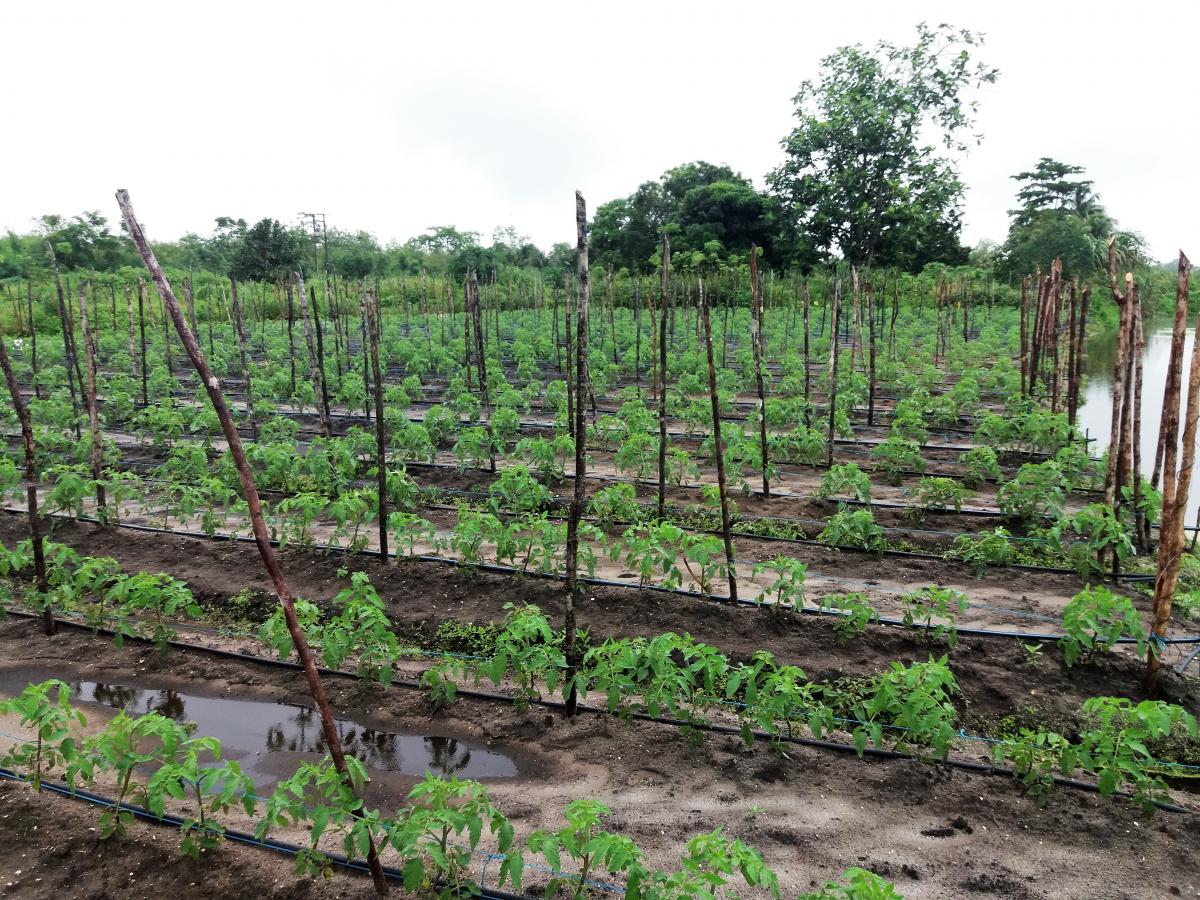
“Creo que en este momento uno de nuestros mayores aliados para enfrentar el desafío que representa el cambio climático para la agricultura en la región es el uso de la innovación y la tecnología”, expresó.
“El IICA se compromete a continuar trabajando con el Ministerio de Agricultura, la FAO, otras organizaciones internacionales, así como con otras agencias de los sectores público, privado y de ONG en Surinam para apoyar iniciativas ecológicas, construir resiliencia en las áreas agrícola y rural y apoyar al país en su búsqueda de un sector agrícola altamente competitivo y sostenible”, añadió.
El IICA es la agencia ejecutora de un componente del proyecto de las Naciones Unidas en Surinam, en colaboración con el Ministerio de Agricultura, Ganadería y Pesca, que se centra en la creación de capacidad en la Gestión de Riesgos de Desastres Agrícolas (ADRM).
“El propósito es preparar al sector para que pueda responder a las amenazas de la producción agrícola como la sequía, las inundaciones y la intrusión de agua salada”, indicó Claus-Martin Eckelmann, oficial forestal regional de la FAO para el Caribe.
“Saber qué hacer en caso de desastre natural ayudará a los agricultores, ya que reduce el tiempo de respuesta, limita el daño y facilita la recuperación”, agregó.
Más información
Curt Delice, Representante del IICA en Surinam y Coordinador de Asuntos Especiales para el Caribe.
